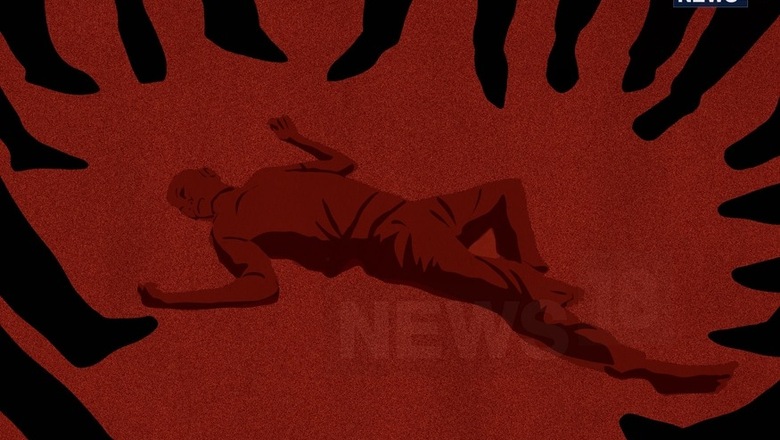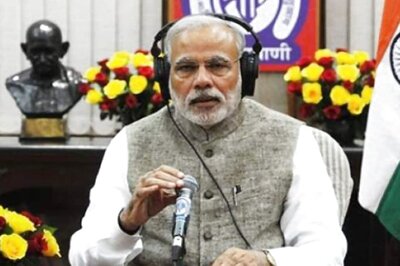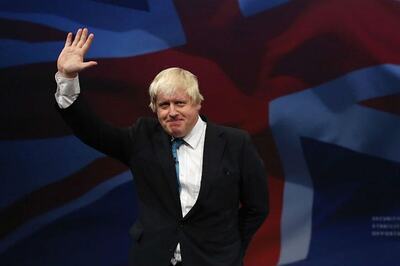
views
One would have expected that, in this day and age, something as barbaric and medieval as lynching would elicit unanimous outrage and condemnation. But in the wonder that is India there are no longer any settled issues; so, while some are aghast that such incidents keep happening, others are infuriated at “selective outrage.”
A group of 49 film personalities and academics, including Adoor Gopalkrishnan, Mani Ratnam, Ramchandra Guha, Ashis Nandy, Anurag Kashyap, Aparna Sen, and Konkona Sen Sharma, recently wrote a letter to Prime Minister Narendra Modi regretting that ‘Jai Shree Ram’ has become a war cry: “Ram is sacred for the majority community, stop defiling the name of Ram.”
It further said, “The lynching of Muslims, Dalits and other minorities must be stopped immediately. We were shocked to learn from the NCRB that there have been no less than 840 instances of atrocities against Dalits in the year 2016, and a definite decline in the percentage of convictions.”
Another group, comprising 62 actors, academics, filmmakers, and authors, wrote to the Prime Minister expressing concern over a “false narrative” and “selective outrage.” The 62 signatories included Kangana Ranaut, Prasoon Joshi, Sonal Mansingh, Madhur Bhandarkar, and Vivek Agnihotri.
These worthies came down heavily on the 49 persons who had written the letter decrying lynching. “This document (the letter by 49 persons) of selective outrage comes across as an attempt to foist a false narrative with the intention of denigrating the democratic ethos and norms of our collective functioning as a nation and people. It is aimed at tarnishing India’s international standing and to negatively portray Prime Minister Modi’s untiring efforts to effectuate governance on the foundations of positive nationalism and humanism which is the core of Indianness.”
Well, the outrage may be selective; it may be true that the 49 personalities are not favourably disposed towards Modi; it may also be true that they did not raise their voice on earlier occasions when, according to the 62, they should have. But what about the facts? Are their statements incorrect? Aren’t lynchings happening all over the country?
Not just happening but spreading; one such incident happened in Delhi last week. This is the reason that the Supreme Court has issued notices to the central government, the National Human Rights Commission, and state governments over the subject. Both the magnitude and severity seem to be growing.
In the case in Delhi, the victim was neither a Muslim nor was he involved in the killing or stealing of any cow. This is not to say that the murder of a Muslim is justified or lynching a person over cow slaughter is kosher; the point is that once started, an evil like lynching keeps finding new prey.
The victim was a 14-year-old boy, suspected of being a thief in the Adarsh Nagar area in north Delhi. Mercilessly beaten, he succumbed to his injuries at a hospital. Four persons, including a man in whose residence the boy had allegedly entered, have been arrested.
Do we see a trend here? It looks like one can thrash anybody for any real or imagined crime, from theft to child-lifting, without any consequences—that is, for the culprits. It is unfortunate that not just politicians bickering over the issue but even public figures and intellectuals can’t have a unanimous view over the subject.
Unsurprisingly, public discourse continues to get sullied—even bloodied. Akhil Bharatiya Hindu Mahasabha activists have reportedly sent letters written in blood to the Prime Minister over mob lynching. “Some filmmakers wrote a letter to the PM saying Muslims are being assaulted in the country and that mob lynchings have taken place. I want to remind that mob lynching has not started today,” said Ashok Pandey, the national spokesperson of the organisation.
Nor did it start in our country, he enlightened us: “In America’s Virginia, there was a judge named Justice Lynch. It was his way of justice to get someone lynched by the mob. This word began from there. This word was never used in the country since 1822. In 1943, when lakhs of Hindus were lynched, no one said anything.”
Ignore the language and ‘facts’ mentioned; what is of importance here is the line of thinking that occasions such absurdities, and their implicit assumptions and logical consequences. You shouldn’t denounce a rape or murder that happened yesterday if you haven’t denounced all the rapes and murders that have till now.
Also, notice the whataboutery involved. The lynching of Pehlu Khan is bad, but what about the treatment meted out to the Kashmiri Pundits? What about 26/11? What about the massacres carried out by Muslim rulers in India? What about the atrocities on the Hindus in Pakistan? The present is mixed up with the past, fact with fiction, solicitude with self-publicity.
Meanwhile, lynching grows in ferocity and reach.
(The author is a freelance journalist. Views Expressed are personal.)




















Comments
0 comment